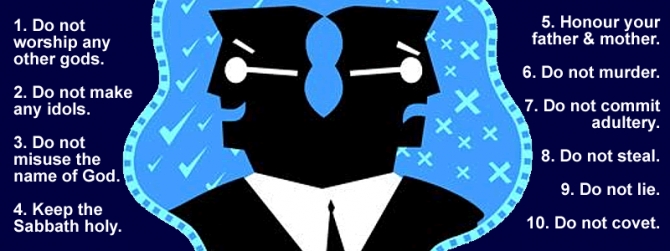Series 4 of 4 exploring how to deal with the carnal man.
Wherefore remember, that you were in times past Gentiles in the flesh, who are called the uncircumcision by that which is called the circumcision in the flesh made by hands; That at that time ye were without Christ, being aliens from the commonwealth of Israel, and strangers from the covenants of promise, having no hope, and without God in the world.
Reference scripture: Ephesians 2:11-22, Galatians 3:23-25, Colossians 2:14
Paul begins to address the state of the Gentile who has received the revelation of Christ, but does not have the history of the covenants which foreshadowed Christ's first coming. Hence he points out that they were without Christ, whilst the Jews as previously disclosed had the Patriarch, Mosaic and Davidic covenants with Christ but through the Law.
Paul is pointing out that we as gentiles were aliens, from the collective common-wealth shared through the promise to Abraham of blessings first to Israel and then to the Gentiles. Hence Christ's first coming in the flesh was to the Jews for which the promises in Abraham were made by circumcision in the flesh made by hands.
Hence also Paul points out that our inability to identify with Israel through circumcision made us strangers to the covenants of promise made with the Patriarchs. As a result we were in the world, but without hope. We were men without the covenants and so without a future in God's purposes.
Hence on the other side of the coin, Israel who were of the circumcision made by hands, had instilled within their heritage the promises of Abraham and so a hope of their generations in the purposes of God. Whilst they had this hope they were however still bound under the carnal law that made them impotent to the accomplishment of that promise. Hence whilst Israel were of the common-wealth, their inheritance was with-held being under the school master.
But now in Christ Jesus you who sometimes were afar off are made nigh by the blood of Christ.
By identifying the dilemma in the camp, the worldly man without promise and a vagabond, and the religious man though near, but unable to possess the fullness of promise. Paul then points us to the new man, the new creation, and the greater stronger man who can resolve the turmoil of the disparity in the extreme natures.
Paul states but now in Christ. In is the key word, because he begins to reveal what has taken place in Christ that resolves the turmoil of duplicity.
For he is our peace, who has broken down the middle wall of partition between us;
Hence in the nature of the dualistic man, there is a middle wall, a dividing strife created out of the extremities of the nature. The double minded man is unstable in all his ways. The man who possesses a condition of duplicity contains a middle wall as a result of the extremities. Hence he lacks any peace. The extremities of the nature have created the wall, and as such cannot be resolved. Between these extremes Paul reveals how Christ has broken down the division.
Having abolished in his flesh the enmity, even the law of commandments contained in ordinances; for to make in himself of twain one new man, so making peace;
In Christ the law which rested in carnal hands so becoming a carnal law of death to man, Christ has abolished. How was that carnal law abolished? Christ has removed the enmity and hostility that was created through mans knowledge of the law and of his impotency to fulfil it.
Colossians 2:14 states; 'Blotting out the handwriting of ordinances that was against us, which was contrary to us, and took it out of the way, nailing it to his cross'.
Christ has fulfilled all the righteousness that the law sought to accomplish in the death of man. As a result abolishing the condition of enmity created by carnal law (Romans 8:7), the law sought to enforce the end of sin, through death. This was the righteous demand from God. God had written the ordinances (the commandments through Moses) that ultimately highlighted man's insufficiency to fulfil his will.
The handwriting of ordinances was against us because we were disobedient in our dualistic nature to it. However whilst the nature of man is sinful and though he may in his religiousness admire the high ideals off the law, his inability to fulfil the law produces enmity and hatred within him by the law. Hence the effect of the law leads to death but does not provide a way of salvation for the sinful man from that death.
'And that he might reconcile both unto God in one body by the cross, having slain the enmity thereby: And came and preached peace to you which were afar off, and to them that were nigh'
Hence Christ in his body on the cross took on at once the duplicity.
First the extremity of the sinful nature (worldliness).
Romans 8:3 - 'For what the law could not do, in that it was weak through the (carnal man) flesh, God sending his own Son in the likeness of sinful flesh, and for sin, condemned sin in the flesh'
What could the law not do? Acts 13:39, Hebrews 7:18-19, Gal 3:13
1. The carnal law could not provide the quality of life that it spoke of, whilst in the hands of carnal men.
2. The carnal law could not provide a way of escape, whilst it was held in the mind of carnal men.
In Christ the carnal law fully exacted its righteous demands by ending sin in the flesh. Hence the law is completely satisfied in Christ.





